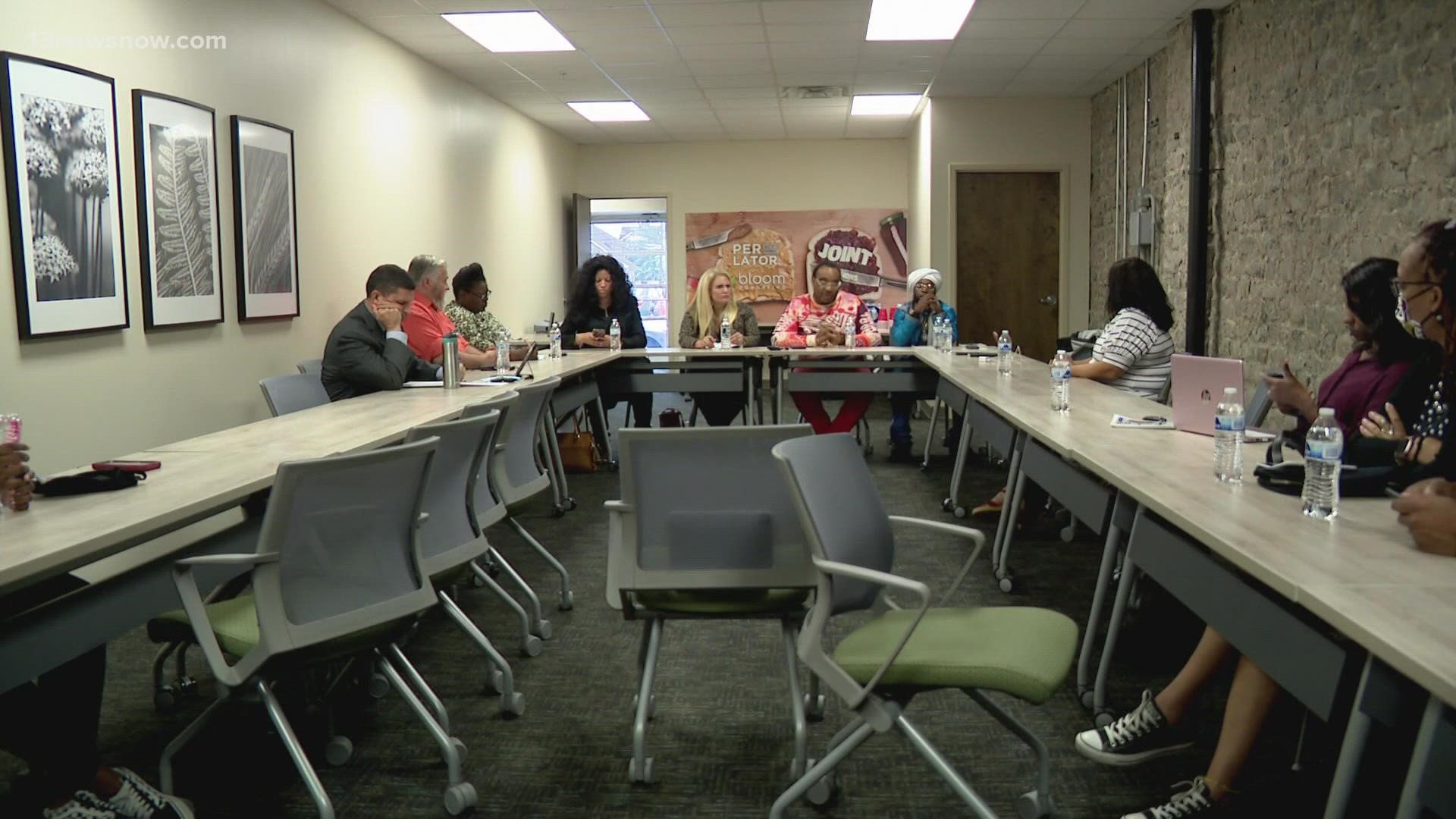PORTSMOUTH, Va. — Portsmouth community members and faith leaders came together Wednesday night to ask the question on many people’s minds: what can we do to stop the violence?
The community meeting comes two weeks after a rally in downtown Portsmouth, asking city council to do more to stop the violence and fast.
On Monday, another teen died in a shooting. He was just 15 years old.
He is the fifth child under the age of 16 to have been shot and killed in Portsmouth this year.
"We're not here to point fingers or cast blame," said Bishop Barry Randall. "We do not have the answer 100 percent concrete of how to fix the problem our city faces."
But on Wednesday night, community activists and faith leaders came together to try and figure it out.
"Fear, anger and pain intersect in a young man’s life, it’s a perfect storm," said Bishop Frank Allen.
He said he works with a lot of young people through his ministry and he’s seen the violence up close
"I’ve buried four young boys in five years all by gun violence," said Allen.
Arnette McSwain, a minister in the city, said some of the teens she works with who want to change for the better are afraid.
"How do you tell them to put the gun down knowing that it’s a possibility that somebody might raise a gun to them?"
Community activist Onyx Hicks said first, the neighborhoods need resources that can actually connect to the people who live there.
"One of the issues is that there is no sense of community anymore," she said. "We have to make sure that we’re there."
Allen echoed that sentiment saying there needs to be an organized “peer supportive services” group.
Darrell Redmond, who is trying to do just that, said yes, people need to talk to elected officials to make a change, but that change can also start with you.
"We go to city council and complain, but then you go home and go to sleep. You’re not in these hoods. You’re not making these bonds."
A sentiment echoed by each of the panelists is that it’s not just the city’s job, or the police department’s job or one neighborhood’s job to get involved, it’s everyone’s responsibility.
All eight panelists acknowledged this is not a problem that can be fixed overnight, but getting different voices and perspectives together is just one step in the right direction.

